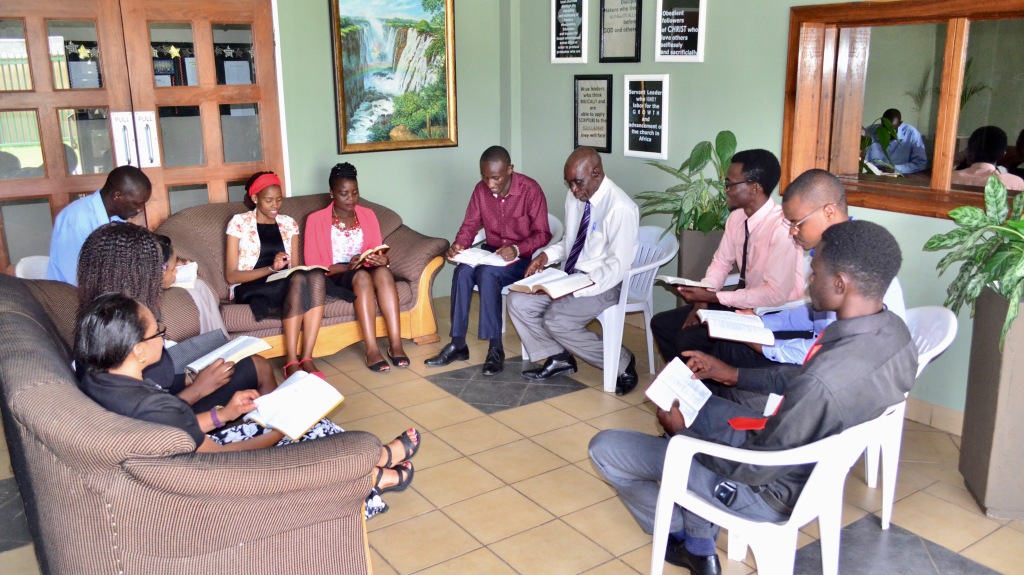Gospel-Powered Humility was written by a local church pastor to pastors, but written in such a way that every Christian should read it, and will benefit immensely. William Farley is the senior pastor of Grace Christian Fellowship in Spokane, Washington, and this book was first published by P&R Publishing in 2011.

I found Gospel-Powered Humility to be a helpful book, drawn from the truth found in the book of Romans, that led me to a fresh appreciation of a theology of humility. In the preface, Farley writes, “Failure to prioritize humility impoverishes our efforts to evangelize, retards our growth in godliness, and impedes the effectiveness of our ministries.” Farley’s central contention in this book is “that the church is most apt to fulfill its God-given purpose when we preach the gospel in such a way that it produces a faith that humbles the sinner and the saint alike.”
Farley reminds us that humility is the virtue from which all other virtues flow. Humility precedes conversion and sanctification and gives us the ability to see what God is doing. This lays the foundation for a compelling argument regarding the need for humility. He points out that most Christians assume a low view of God and a high view of self, noting that “low self-esteem usually means I think too highly of myself. I’m too self-involved, and I feel I deserve better than what I have” (quote from Edward Welch).
We are reminded that we are called to clothe ourselves in humility. This involves brokenness, the shattering of our pride, and the honest realization of the majesty of God.
In chapters 3 through 7, Farley outlines five ways the gospel humbles us:
- We are humbled by the wrath of God. The proclamation of God’s wrath poured out on Jesus is “to some the aroma of Christ to God, among those who are being saved, and among those who are perishing, to one a fragrance from death to death, to the other a fragrance from life to life” (2 Corinthians 2:15-16).
- We are humbled by the final judgment. God, who is angry with us, will be our judge. Farley reminds us that God’s law is written on every human heart, and our passion for justice and desire to be treated fairly reflect God’s infinite justice. Farley says our preaching must humble the sinner, driving listeners “by hell on the way to heaven.”
- We are humbled by the sinfulness of sin, which has twisted, maimed, and destroyed everything created for good, affecting our desires, understanding, behavior, speech, relationships, and ultimately our relationship with God.
- We are humbled by faith alone. Farley argues that we are spiritually bankrupt and must plead for mercy, but pride resists begging. The gospel says we must stoop to enter God’s kingdom, for “by grace, you have been saved through faith. And this is not your own doing; it is the gift of God, not a result of works, so that no one may boast” (Ephesians 2:8-9).
- We are humbled by the history of preaching. Throughout history, God’s works have been accompanied by deep humility, and revivals have produced convictions of sin. The gospel that humbles sinners has been central to the great movements of God from the Reformation to the Great Awakenings.
Farley concludes by addressing the fear of man, using the apostle Paul’s example in Romans 1:16. The bad news must be proclaimed to prepare listeners for the good news, for until they are humbled, the gospel will hold little interest. He identifies the roots of the fear of man as unbelief and a failure to love.
In the final chapter, “The Power of a Humble Leader,” Farley outlines five crucial applications: the pursuit of humility is a battle, intellectual pride tempts pastor-scholars, spiritual pride tempts zealous leaders, selfish ambition tempts effective leaders, and pride in gifting tempts talented leaders.
Farley’s “Gospel-Powered Humility” is a treatise on how the gospel message itself is designed to humble us before a holy God. By grappling with the realities of God’s wrath, final judgment, the sinfulness of sin, the necessity of faith alone, and the history of humility-focused preaching, readers are challenged to cultivate a posture of brokenness and dependence before the Lord. This book serves as a faithful reminder that the path to spiritual vitality and ministry fruitfulness begins with embracing humility. I highly recommend this book to you.






Leave a comment